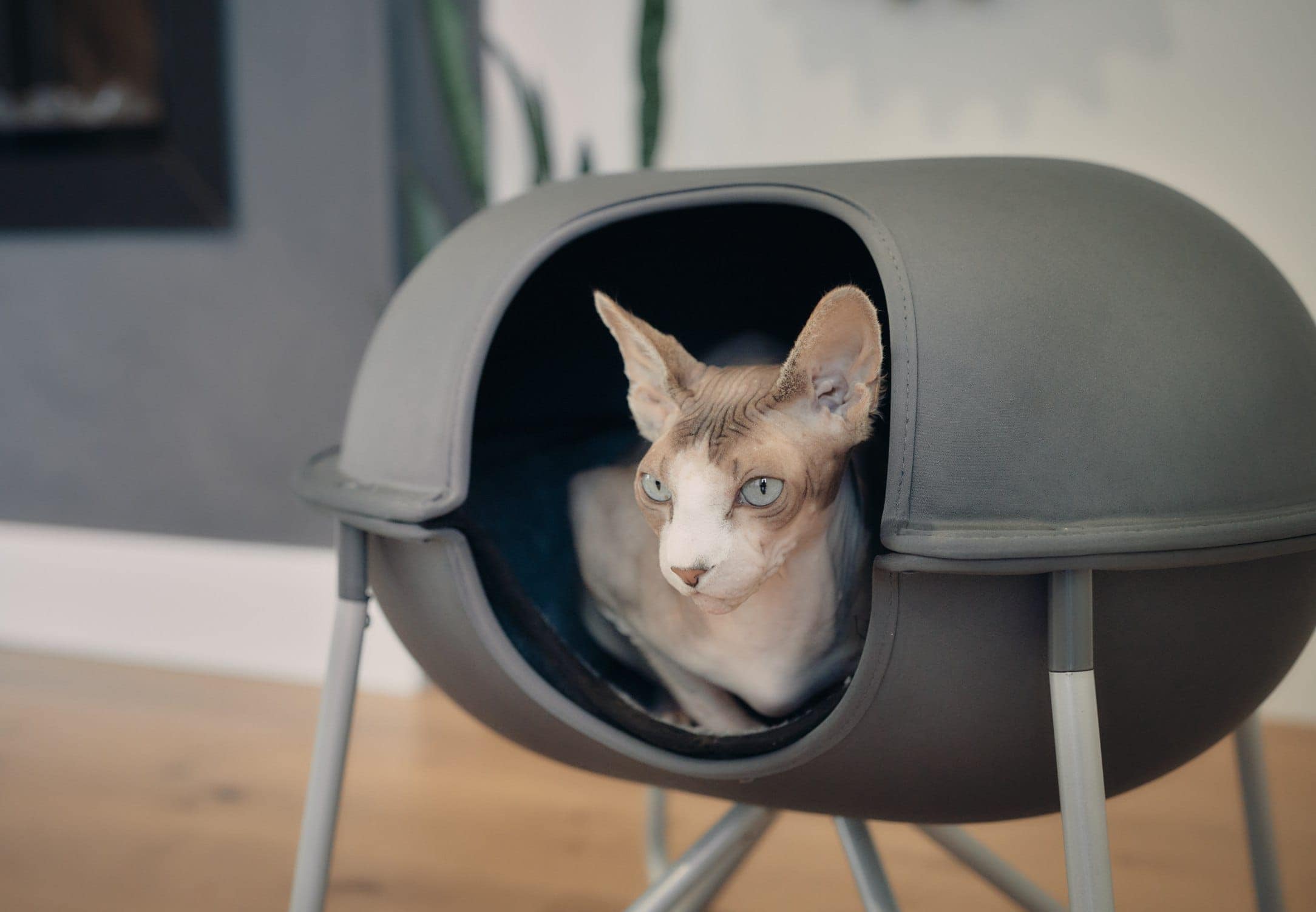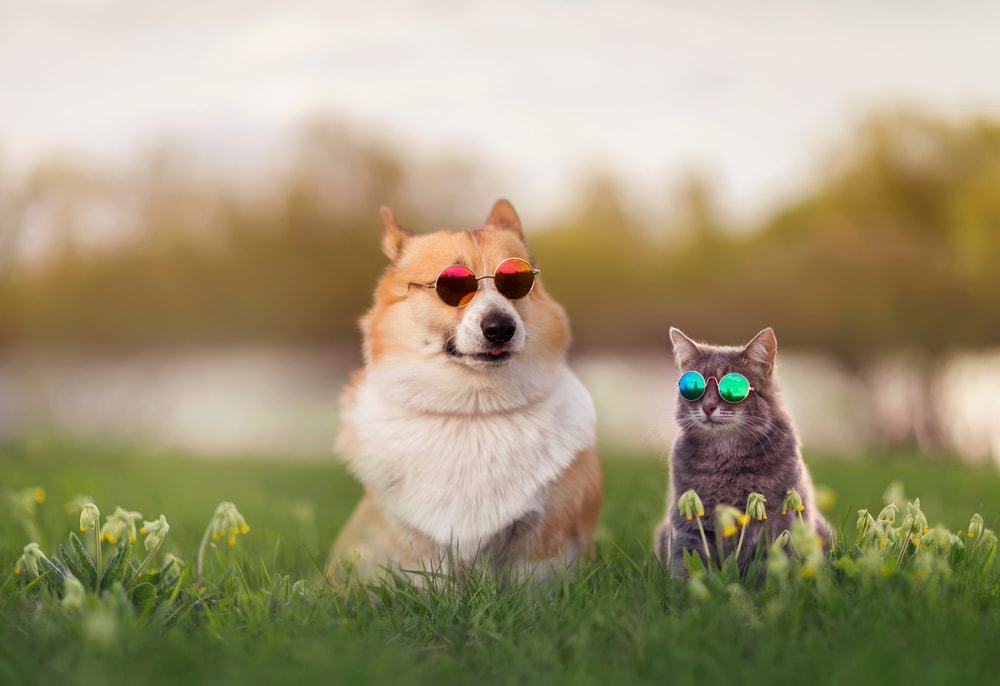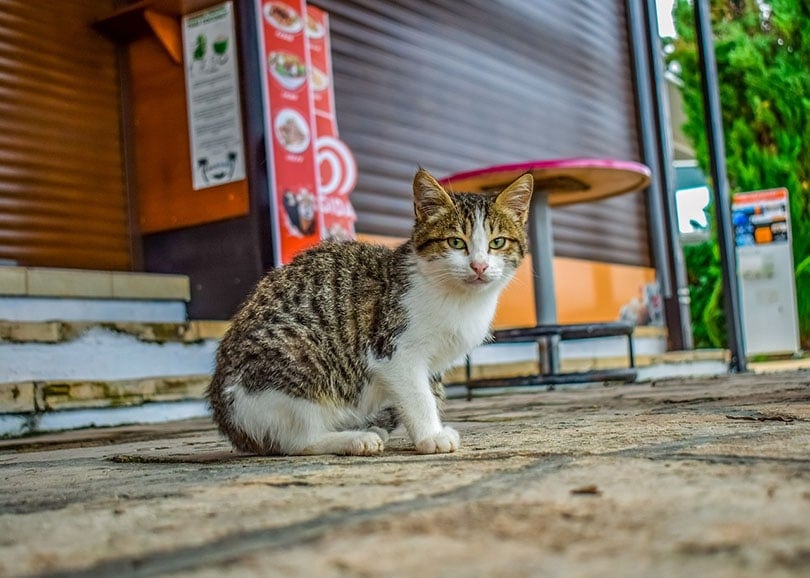Can Cats Eat Potted Meat? Vet-Reviewed Risks & Facts
Updated on
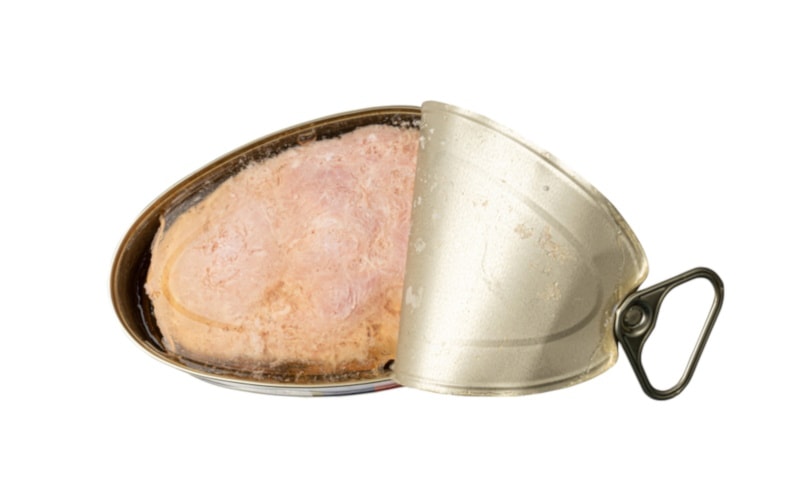
Click to Skip Ahead
The sound of a can opening can set even the most well-behaved kitty into a frenzy. But if you’re opening a can of meat for yourself and not your pet’s canned food, you might wonder if you can offset your kitty’s disappointment by offering him a taste of your potted meat.
While a tiny bite is unlikely to cause long-lasting damage, we don’t recommend sharing potted meat with your kitty. Read on to learn more.
What Is Potted Meat?
Before diving deeper into the appropriateness of potted meat for cats, we need to talk about exactly what it is.
Potted or canned meat is a food product that’s preserved through canning. It can consist of various seasoned and cooked meats, most of which are minced or ground. The meat is then heat-processed and put into small cans to be sealed.
Many potted meats consist of beef, though they can also contain selections from other animals, including pork and mechanically separated chicken. Many manufacturers infuse their meat mixes with spices and additives to enhance flavor.
Spam is arguably the most famous potted meat. It comes in many flavors, including oven-roasted turkey, jalapeno, teriyaki, and hickory smoked.
Can Cats Eat Potted Meat?
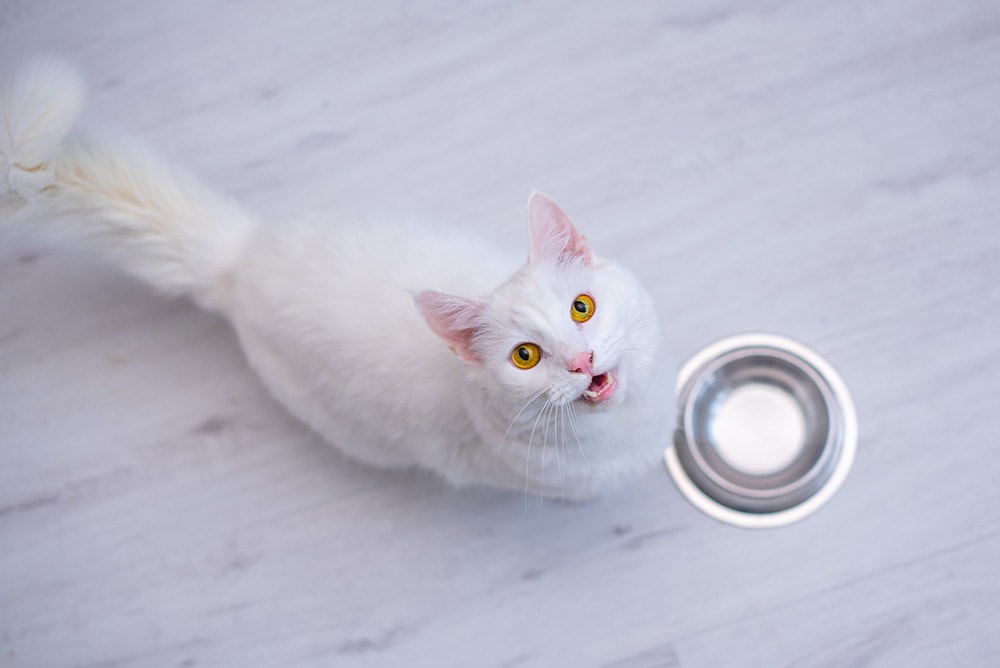
While your cat is likely very attracted to the scent of potted meat, it isn’t something we recommend sharing with your pet. Even in the human world, canned meats have a mixed reputation for their unique taste and texture. While it is a low-cost way for us to hit our protein goals, there are some things you should know about potted meats before eating them yourself, and especially before giving any to your cat.
What’s the Problem With Potted Meats?
Highly Processed
Potted meats are highly processed to increase their shelf life. Processed meats are not part of your cat’s natural diet, so they shouldn’t be offered as they can cause digestive issues.
Sodium Nitrite
Sodium nitrites are a common food additive that manufacturers add to potted meat to prevent bacteria growth and improve their product’s flavor. Nitrite intake in humans has been associated with increased risks of stomach cancer 1 and brain tumors 2.
While there aren’t yet many studies looking at the effects of nitrites on our feline family members, extremely high amounts were linked to cat deaths in at least one study 3.
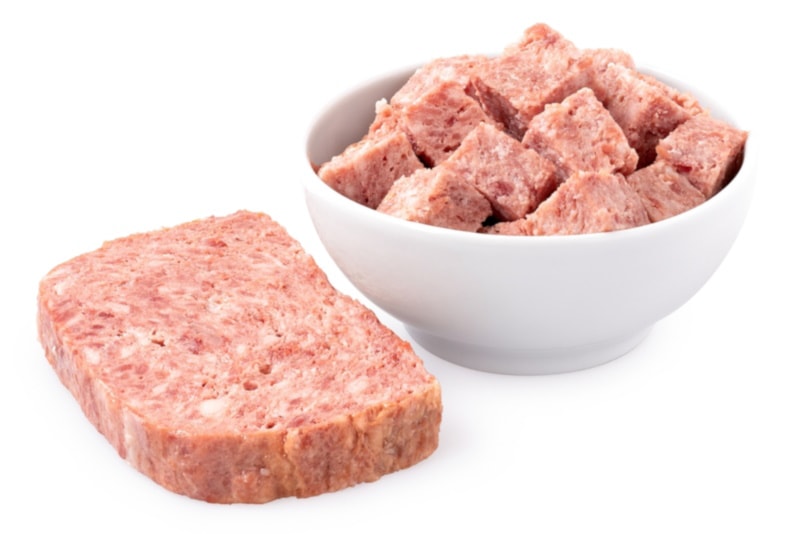
High in Sodium
Potted meat is extremely high in sodium, which can be unhealthy for your kitty. Cats don’t metabolize food as humans do, so the amount of sodium in a serving of Spam (790 mg) is almost 19 times more than what your kitty should be eating in a day (42 mg).
Abnormally high sodium levels in the blood and can cause signs such as increased thirst, confusion, seizures, and may even put your pet into a coma. Although this is rarely seen with high oral sodium intake, it is still worth considering before offering your kitty potted meat.
High-Fat Content
Many potted meats are extremely high in fat. Spam, for example, contains a whopping 16 grams per two-ounce serving. For comparison, adult cats should get around 5.5 grams of fat daily. Eating too much fatty food can lead to obesity and its related conditions, such as diabetes and joint disease.
What About Canned Chicken or Tuna?

Canned chicken can be a great treat for your kitty, provided it is not chock full of potentially harmful seasonings or spices. We recommend reading the sodium content on the can to determine its suitability for your kitty. Look for options without any salt, oil, garlic, onion, or other flavoring added.
Plain tuna isn’t a nutritionally balanced protein source for cats and shouldn’t be fed as a large part of your pet’s diet. If you’re opening a can of tuna for yourself and your pet wants a taste, you can safely give them a tiny piece. Please note that canned tuna packed in water is the best option, so steer clear of varieties canned in oil, or those with added salt or flavorings.
Final Thoughts
Thanks to its high sodium content and preservative-laden ingredient list, potted meat isn’t a healthy protein source for your kitty. However, a very small taste now and then is unlikely to cause any lasting damage. If you’re like us and prefer to err on the side of caution, we recommend steering clear of such meats and feeding your cat more appropriate commercial treats designed with your feline family member in mind.
Featured Image Credit: Ermak Oksana, Shutterstock




